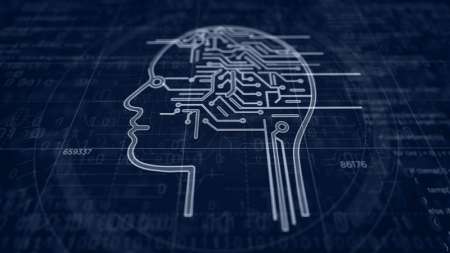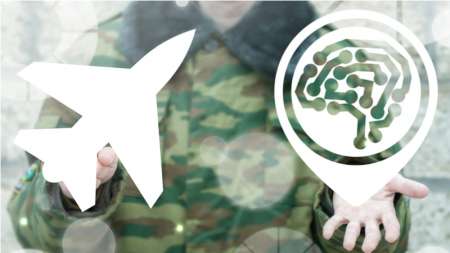The Intelligence Advanced Research Projects Agency (IARPA) wants to cut costs and boost efficiency by launching a new Commercial Data Consortium that will give the intelligence community (IC) easier, unified access to commercial data. […]
A program intended to tackle large language model (LLM) biases and hallucinations has made progress toward its launch, the director of the Intelligence Advanced Research Projects Activity (IARPA) said on Thursday. […]
Amidst a rapidly evolving global landscape, the proliferation of open-source intelligence (OSINT) and the trustworthiness of data sources are just a few of the priorities shaping the strategic focus of the Intelligence Advanced Research Projects Agency’s (IARPA) newest director. […]
The Intelligence Advanced Research Projects Activity (IARPA) – the research and development arm of the Office of the Director of National Intelligence – has awarded four-year contracts to five companies to help kickstart a new project to study the psychology of hackers and to determine how to better blunt attacks. […]
The Intelligence Advanced Research Projects Activity (IARPA) – which operates within the Office of the Director of National Intelligence (ODNI) – has launched a new effort aimed at advancing the science behind quantum computing by lowering the number of errors produced in the process of quantum research. […]
The Intelligence Advanced Research Projects Activity (IARPA) is seeking to provide novel technologies to improve the response of both law enforcement and the intelligence community (IC) in attributing the sources of malicious cyberattacks. […]
The Intelligence Advanced Research Projects Agency (IARPA) is seeking to develop and incorporate “novel technologies” that will efficiently probe large language model (LLM) AI services – like ChatGPT – in an effort to detect and characterize an emerging tool’s threat modes and vulnerabilities. […]
The Intelligence Advanced Research Projects Agency (IARPA) is seeking information on established vulnerabilities and threats that could impact the safe use of large language model (LLM) AI technologies – like ChatGPT – by intelligence analysts. […]
Dr. Catherine Marsh, director of the Intelligence Advanced Research Projects Activity (IARPA) part of the Office of the Director of National Intelligence, talked about the value – in limited doses – of failure as an expected and necessary outcome of the difficult research areas that her organization was created to take on with the help of industry and academia. […]
The Intelligence Advanced Research Projects Activity (IARPA) is seeking “seedling” research topics for next-generation microelectronics in support of artificial intelligence (MicroE4AI). […]
President Biden intends to nominate Stacey Dixon, an intelligence community veteran and current deputy director of the National Geospatial-Intelligence Agency (NGA), to serve as the principal deputy director in the Office of the Director of National Intelligence (ODNI), the White House announced today. […]
Jason Matheny, former head of the Intelligence Advanced Research Projects Agency (IARPA), has been given three new technology and national security roles in President Biden’s White House. […]
The Intelligence Advanced Research Projects Activity (IARPA), the research arm of the Office of the Director of National Intelligence, has launched a multi-year research effort aimed at expanding wide-area satellite imagery technologies. […]
The Intelligence Advanced Research Projects Activity (IARPA) issued a Broad Agency Announcement (BAA) seeking information on developing software capable of whole-body (WB) identification at long-range and from elevated platforms. […]
The Intelligence Advanced Research Projects Activity (IARPA) looking to develop smart radio techniques for detecting anomalies and secure data transmissions. […]
The Intelligence Advanced Research Project Activity (IARPA) is looking for proposals by April 7 for tools and techniques to more efficiently search the surface of the earth using airborne and space-based cameras. […]
Catherine Marsh has returned to the Intelligence Advanced Research Projects Activity (IARPA) as the organization’s new director, according to a Nov. 22 press release from the Office of the Director of National Intelligence (ODNI). […]
The Intelligence Advanced Research Projects Activity (IARPA) recently launched the Geopolitical Forecasting Challenge 2, which encourages solvers to develop innovative methods for utilizing crowdsourced information to create global issue forecasts. […]
The Intelligence Advanced Research Projects Activity (IARPA) office released a draft solicitation for innovative solutions for automated broad-area search, monitoring, and analysis of anthropogenic activities – those related to human activity – within its Space-based Machine Automated Recognition Technique (SMART) program. […]
An important step in advancing artificial intelligence (AI) initiatives includes fortifying algorithms for AI, which are often brittle and “not good,” said Dr. John Beieler, program manager at the Intelligence Advanced Research Projects Activity (IARPA). […]
Defense Department (DoD) officials voiced sometimes conflicting ideas today about how the agency should migrate legacy systems to the cloud. […]
The IC’s top research arm, the Intelligence Advanced Research Projects Activity (IARPA), wants to be able to get the gist anywhere and anytime. They are inviting researchers from around the world in industry and academia to use machine learning to develop algorithms for cross-lingual information retrieval capable of extracting answers from little-known foreign languages to questions posed in English. IARPA’s Open Cross-language Information Retrieval (CLIR) Challenge is inviting participants to compete for prizes while working on a kind of fast-working translator that can interpret other languages while using a minimal amount of training data, focusing particularly on what it calls “computationally underserved languages.” […]
The intelligence community’s (IC) stock in trade has always been knowing what nobody else knows. Now it’s looking to tap into new technology to expand its ability to forecast geopolitical events in several ways, including finding out what everybody knows. […]
Stacey Dixon, director of the Intelligence Advanced Research Projects Activity (IARPA), said today at an event organized by Defense One that some of the intelligence community’s more audacious research centers on using machines to predict the future–through more accurate forecasts of geopolitical events. Dixon also said IARPA research aims to translate neuroscience to neural networks, hoping that efforts to map the human brain can lead to massive strides in machine learning. […]
Stacey Dixon will be the next director of the Intelligence Advanced Research Projects Activity (IARPA). […]
Leaders in the Federal intelligence community, speaking last Tuesday at Defense One’s Tech Summit, said that their agencies are using vast stores of data, machine learning, and neural networks to go beyond simple fact-finding, to now radically re-envision how the intelligence community acts on credible information. But with these advances in technology come thorny new ethical and procedural questions, those officials said. […]
The Pentagon’s top research arm is sponsoring development of a first-of-its-kind software that can model the events that contribute to conflicts around the world, and, if not quite predict the future, at least offer a timely heads-up on what might happen next. […]
The possibilities of quantum computing have been floating on the horizon for a while now, at least since renowned physicist Richard Feynman dreamed up the idea in 1982. But like the horizon itself (at least in a world that isn’t flat), it always seems to recede despite all efforts to close in on it. Until now. […]
Welcome to MeriTalk News Briefs, where we bring you all the day’s action that didn’t quite make the headlines. No need to shout about ‘em, but we do feel that they merit talk. […]
The White House’s planned advisory committee on artificial intelligence may or may not help keep the country at the forefront of technological innovation, but it is another sign that the government is getting more serious about the importance of AI and the potential threats of falling behind in the “AI arms race.” […]
























